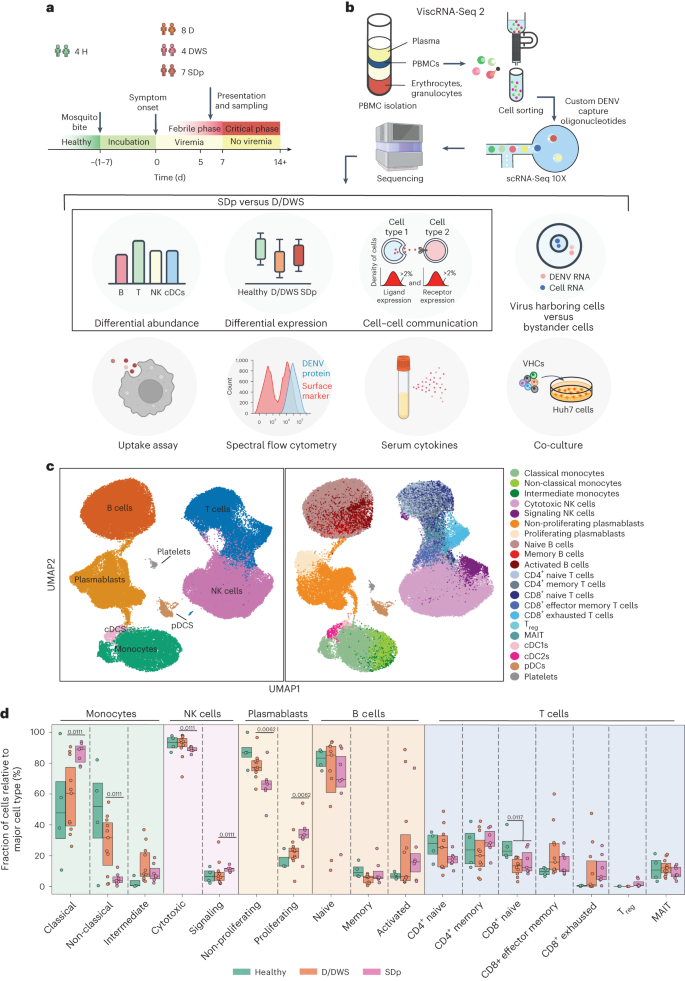2023-10-30 ニューサウスウェールズ大学(UNSW)
◆デング熱は、蚊によって広まるウイルスで、感染者のほとんどは症状がないか、熱症状が急速に治まるだけですが、5%の人は臓器障害や死亡につながる重篤なデング熱に進行します。特に子供は、デング熱ウイルスに対する最も重篤な反応を示すことが多いです。この研究は、リスクのある患者の診断と治療に活用できる可能性があるとされています。
<関連情報>
- https://newsroom.unsw.edu.au/news/health/immune-confusion-leads-severe-dengue-children-study
- https://www.nature.com/articles/s41590-023-01654-3
システム免疫学的アプローチにより同定されたデング熱重症化のグローバルかつ細胞型特異的な免疫学的特徴 Global and cell type-specific immunological hallmarks of severe dengue progression identified via a systems immunology approach
Luca Ghita,Zhiyuan Yao,Yike Xie,Veronica Duran,Halise Busra Cagirici,Jerome Samir,Ilham Osman,David Esteban Rebellón-Sánchez,Olga Lucia Agudelo-Rojas,Ana Maria Sanz,Malaya Kumar Sahoo,Makeda L. Robinson,Rosa Margarita Gelvez-Ramirez,Nathalia Bueno,Fabio Luciani,Benjamin A. Pinsky,Jose G. Montoya,Maria Isabel Estupiñan-Cardenas,Luis Angel Villar-Centeno,Elsa Marina Rojas-Garrido,Fernando Rosso,Stephen R. Quake,Fabio Zanini & Shirit Einav
Nature Immunology Published:23 October 2023
DOI:https://doi.org/10.1038/s41590-023-01654-3

Abstract
Severe dengue (SD) is a major cause of morbidity and mortality. To define dengue virus (DENV) target cells and immunological hallmarks of SD progression in children’s blood, we integrated two single-cell approaches capturing cellular and viral elements: virus-inclusive single-cell RNA sequencing (viscRNA-Seq 2) and targeted proteomics with secretome analysis and functional assays. Beyond myeloid cells, in natural infection, B cells harbor replicating DENV capable of infecting permissive cells. Alterations in cell type abundance, gene and protein expression and secretion as well as cell–cell communications point towards increased immune cell migration and inflammation in SD progressors. Concurrently, antigen-presenting cells from SD progressors demonstrate intact uptake yet impaired interferon response and antigen processing and presentation signatures, which are partly modulated by DENV. Increased activation, regulation and exhaustion of effector responses and expansion of HLA-DR-expressing adaptive-like NK cells also characterize SD progressors. These findings reveal DENV target cells in human blood and provide insight into SD pathogenesis beyond antibody-mediated enhancement.


